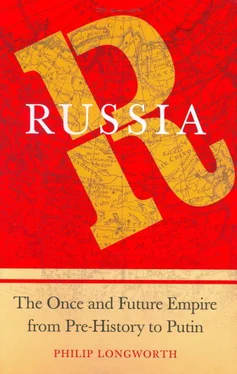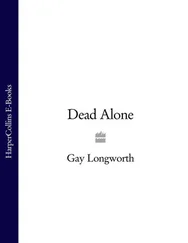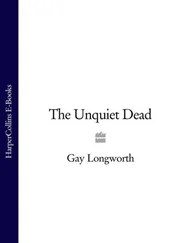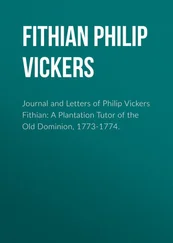Discontented elements came to the fore, each with its own agenda but united against innovation. Religious conservatives had been outraged by the confirmation in 1666 of changes to the liturgy. The ‘Old Believers’ would not be reconciled to them. At the same time there was widespread concern in the ranks of traditional army units, including the privileged musketeer corps, about modernization of the army. Many soldiers saw this as a threat; and many of them were also Old Believers, armed and stationed in the Kremlin. Their commander was the ambitious Ivan Khovanskii. The upshot was rebellion. On 15 May 1682 — the anniversary of the death of the Tsarevich Dmitrii at Uglich nearly a century before — false rumours spread that Ivan, the rightful tsar, had been murdered. Three days of blood-shed followed in the seat of government itself Matveyev was butchered; so were the Kremlin’s foreign doctors, along with other foreigners. The mob’s attentions may seem to have been indiscriminate, but all the victims represented modernization in one or another of its forms. When order returned, Ivan and Peter reigned jointly, with Alexis’s eldest daughter, Sofia, as regent. After an interval, Khovanskii and others involved in the rebellion were executed, and leading Old Believers were burned at the stake. The attempt to reverse the modernization policies was thwarted; the government’s attention returned to foreign affairs.
The first priority was to establish a permanent peace with Poland. This was done in Moscow in the spring of 1686. The Poles ratified all the territorial transfers they had conceded at Andrusovo. They also ceded Kiev permanently to Russia in return for a payment of less than 150,000 rubles. Poland’s king, Jan Sobieski, the ‘hero of the siege of Vienna’ only three years earlier, tried to avoid ratifying the treaty, but had to sign in the end. Russia’s only concession apart from the money was a promise to attack the Crimea. Two campaigns in successive years were failures, but that did not alter the fact that Russia had replaced Poland as the predominant power in the region; and the success was due in no small measure to superior diplomatic methods, and to a succession of particularly able professional functionaries.
Although the political direction of foreign affairs in the later 1600s had been overseen by a succession of able ministers — Afanasii Ordyn-Nashchokin, Artamon Matveyev, Vasilii Golitsyn — their success was based largely on the strength of the support they received from those below. By the 1680s the Foreign Office had a staff of over forty translators and interpreters working in a variety of languages, chiefly Latin, Tatar, German and Polish, but also Persian, Swedish, Dutch, Greek, Mongol and English. 37There was an even bigger cohort of clerks, and, above them were the senior officials. The permanent secretary at the time of the Andrusovo negotiations rejoiced in the name of ‘Diamond Johnson’ (Almaz Ivanov), ‘Diamond’ being his family name; his family were business people. He began his association with government in the 1620s, supervising the liquor outlets, and in the late 1630s he was in charge of customs and the liquor monopoly. He subsequently became Secretary in the state’s main fiscal department before entering the Foreign Office in 1646. He served on embassies to Sweden and to Poland in the early 1650s, before being promoted to membership of the cabinet (duma — by now essentially a committee of the Tsar’s chief ministers) as professional head of the Foreign Office. At the same time he was given responsibility for the State Printing Office. This was a particularly sensitive job in that it involved publishing translations of foreign books which contained essential expertise which Russia needed, but which were viewed with horror by most Russians, who, perhaps rightly, imagined that such learning threatened their faith.
Another top functionary, Dementy Bashmakov had a different sort of career. His early experience was as a scribe registering state lands in the north-west and as an under-secretary on the palace staff. On the outbreak of war, however, he was promoted to run the Tsar’s campaign treasury, then to help administer the territory conquered in Lithuania. Soon afterwards he became secretary of the Tsar’s new private office, and then ‘Secretary in the Sovereign’s Name’, which gave him special powers to sign authorizations on the Tsar’s behalf. He was given ministerial (duma) rank to run the Muster Office, before his appointment to the Foreign Office in 1671. He also served three spells in charge of the Printing Office, ran the Ukraine Office for a time in the 1670s, and, as an experienced trouble-shooter, continued to serve spells in various financial ministries, in the Petitions Office, and on commissions of inquiry — notably that into monetary problems after the copper riots.
The official most concerned in achieving the 1686 treaty with Poland, Emelian Ukraintsev, had a more conventional career in foreign relations. Nevertheless, he served a seven-year apprenticeship in a financial department before taking up post in the Foreign Office. His rise was meteoric. Sent on a low-grade mission to Sweden and Denmark in 1672, he became senior under-secretary in the department the same year, was promoted to the rank of full secretary in 1675, and joined the duma in 1681. A specialist in the affairs of the north-west, he had served in the department administering the most north-westerly province of Novgorod, and also in that administering Ustiug in the far north — where he watched the Swedish border provinces closely, as well as Sweden’s court. But after his triumph of 1686 (for which he was awarded estates, hereditary as well as service-obligated) he carried major responsibilities for Ukraine and its neighbours. He accompanied the expeditionary forces to Crimea in the late 1680s. His last recorded service was as ambassador extraordinary to Turkey in 1699. 38
Outsiders were also given diplomatic missions from time to time. Robert Menzies, a Catholic Scot by birth, was sent to the Pope; the Romanian known as Spafarius (who at least was Orthodox) advised Regent Sofia’s Foreign Minister, Prince Golitsyn. But the backbone of the service was Russians like Ivanov, Bashmakov and Ukraintsev. Though senior Foreign Office functionaries, they were all experienced in domestic affairs too, not least in financial matters. They had been trained to see things in the round and to understand the implications, broad as well as narrow, of the moves they and others made. In addition to guiding Russia’s relations with foreign powers from Spain to China, their knowledge of the outside world — so rare among Russians of that period — meant that they were in demand to handle any matter involving foreigners or foreign things. They were therefore concerned not only with diplomatic dealings, but also with the foreign doctors who served the tsars — indeed, with all the many foreigners who served Russia. They advised on foreign books, helped procure foreign armaments, negotiated foreign trade, and administered territories with sensitive frontiers. And, since so much of the work involved the West, they played a crucial role in the country’s modernization, in laying the foundations of Russia’s ‘Westernizing’ policies that became increasingly evident from the 1650s.
By 1700 Russia had not only recovered from the collapse at the beginning of the century, but was poised for two centuries of almost uninterrupted empire-building. That story begins in the eighteenth century, but the launch pad for the brilliant series of advances had been constructed in the 1600s.
8
Peter the Great and the Breakthrough to the West
ON 22 October 1721, at a ceremony in the new but unfinished city of St Petersburg which he had founded, Tsar Peter I, son of Alexis, was offered a new title by the Senate which he had created: ‘Father of the Fatherland, Emperor of All Russia, Peter the Great’. In explaining the award, the Chancellor, Peter’s long-standing confidant and sometimes bawdy correspondent Gavrilii Golovkin announced that Peter had ‘brought us out of the darkness of ignorance on to the world stage of glory; from non-existence, as it were, to existence, and on to terms of equality with the political nations’. 1Ever since, not only most of the outside world but many Russians themselves have believed that Peter created Russia. The myth was at least in part a deliberate construction, the work of Peter’s acolytes and successors, not least of Catherine the Great, Voltaire, Daniel Defoe (albeit anonymously) and a dozen other hired publicists. As a result, no other European ruler before Napoleon was to be branded more deeply into the consciousness of future generations.
Читать дальше





![Stephan Orth - Behind Putin's Curtain - Friendships and Misadventures Inside Russia [aka Couchsurfing in Russia]](/books/415210/stephan-orth-behind-putin-s-curtain-friendships-a-thumb.webp)





